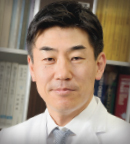The ASCO Post reached out to Roy S. Herbst, MD, PhD, FACP, FASCO, Chief of Medical Oncology and Associate Cancer Center Director for Translational Research at Yale Cancer Center and Smilow Cancer Hospital, New Haven, for his thoughts on the LCMC3 trial of neoadjuvant atezolizumab.1 Dr. Herbst led some of the earliest studies of this PD-L1 inhibitor and reflected on the progress in the field.
“Nine years ago, we gave this drug to patients and saw amazing responses in the most advanced-stage cancer.2 The fact that atezolizumab is now moving to the earlier, more curable stages of lung cancer is fantastic,” he commented.

Roy S. Herbst, MD, PhD, FACP, FASCO
Atezolizumab appears active in the neoadjuvant setting, based on the observation of a major pathologic complete response in 21% of patients and a complete response rate of 7%, Dr. Herbst said. Those findings reflect the positive results (45% response rate) also seen with nivolumab in a pilot trial of 20 patients.3 Based on the much larger population of LCMC3 (181 patients) and “assuming the drugs are equal,” Dr. Herbst believes the true response rate will be closer to that seen in LCMC3, which he called “a very impressive tour de force study.”
As Dr. Herbst noted, with neoadjuvant therapy the idea is not only to render tumors easily resectable, but to attack them when they have an abundance of immune cells and T cells to activate, “revving up the whole immune system.” After the tumor is resected, this opportunity is diminished.
Next Steps
According to Dr. Herbst, the question then becomes how to treat patients after neoadjuvant immunotherapy: Do we give immunotherapy again in the adjuvant setting or chemotherapy? “I predict immunotherapy will also be active in the adjuvant setting, but there you have fewer cells available for a treatment effect,” he commented.
The encouraging results with atezolizumab and nivolumab as single agents in the neoadjuvant setting “are a starting point for even more progress in this deadly disease,” Dr. Herbst emphasized. The next step will be to build upon single-agent activity with combinations.
Additional Commentary: Clinical Implications

Shinichi Toyooka, MD
Describing how the findings from LCMC3 might be applied today was the study’s invited discussant of this trial, Shinichi Toyooka, MD, a thoracic surgeon at Okayama University Hospital, Japan. For him, the question is when to use a single agent and when to use immunotherapy plus chemotherapy. In the NADIM trial, three cycles of nivolumab plus carboplatin/paclitaxel resulted in a response rate of 83%,4 although grade ≥ 3 treatment-related events were much more common with the combination therapy than with a single agent, he noted.
Dr. Toyooka maintained that the two approaches—single-agent checkpoint inhibition or checkpoint inhibition plus chemotherapy—“may have their own target populations based on disease state and patient function.” The single agent may be most appropriate for patients with early-stage disease who have a poor performance status, and the combination may be more suitable for advanced but resectable cases, he maintained.
DISCLOSURE: Dr. Herbst has served in a leadership role for Jun Shi Pharmaceuticals; has served as a consultant or advisor to AbbVie, Armo Biosciences, AstraZeneca, Bolt Biotherapeutics, Biodesix, Bristol Myers Squibb, Candel Therapeutics, Cybrexa Therapeutics, eFFECTOR Therapeutics, EMD Serono, Genentech/Roche, Genmab, Halozyme, Heat Biologics, IMAB Biopharma, Immunocore, Infinity Pharmaceuticals, Jun Shi Pharmaceuticals, Lilly, Loxo, Merck, Mirati Therapeutics, Nektar, Neon Therapeutics, NextCure, Novartis, Oncternal Therapeutics, Pfizer, Sanofi, Seattle Genetics, Shire, Spectrum Pharmaceuticals, STCube Pharmaceuticals, Symphogen, Takeda, Tesaro, Tocagen, WindMIL Therapeutics, and Xencor and has received research funding from AstraZeneca, Genentech/Roche, Lilly, and Merck. Dr. Toyooka has received honoraria from Astellas Pharma, AstraZeneca, Bayer, Boehringer Ingelheim, Chugai Pharma, Daiichi Sankyo, Johnson & Johnson, Kyorin, Medtronic, Ono Pharmaceutical, and Taiho Pharmaceutical; has served as a consultant or advisor to Kyorin; has participated in a speakers bureau for Taiho Pharmaceutical; and has received research funding from Taiho Pharmaceutical.
REFERENCES
1. Lee JM, Chaft J, Nicholas A, et al. Surgical and clinical outcomes with neoadjuvant atezolizumab in resectable stage IB–IIIB NSCLC: LCMC3 trial primary analysis. 2020 World Conference on Lung Cancer. Abstract PS02.05. Presented January 30, 2021.
2. Herbst RS, Soria JC, Kowanetz M, et al: Predictive correlates of response to the anti-PD-L1 antibody MPDL3280A in cancer patients. Nature 515:563-567, 2014.
3. Forde PM, Chaft JE, Smith KN, et al: Neoadjuvant PD-1 blockade in resectable lung cancer. N Engl J Med 378:1976-1986, 2018.
4. Provencio M, Nadal E, Insa A, et al: Neoadjuvant chemotherapy and nivolumab in resectable non-small-cell lung cancer (NADIM). Lancet Oncol 21:1413-1422, 2020.

